Commissioner Mairead McGuinness visits Tyndall, at University College Cork, a leading European ICT (Information and Communication Technologies) institute with semiconductor deep-tech at its core.
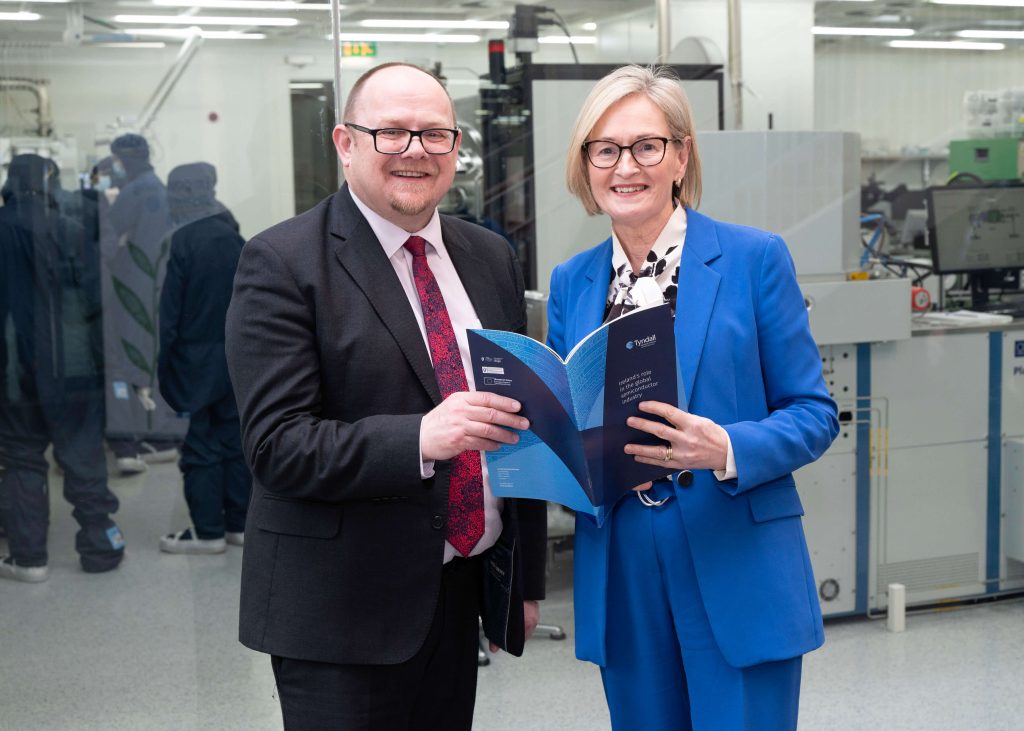
Commissioner Mairead McGuinness was welcomed to Tyndall where she saw firsthand the importance of Tyndall’s role in the European semiconductor ecosystem.
Tyndall is internationally recognised as a European infrastructure of scale. When the EU adopted its much-anticipated Chips Act, Tyndall published a position paper calling for Ireland to follow suit and develop its own semiconductor strategy and utilise the potential opportunities presented by this Chips Act. This call to action has been endorsed by the global CEOs of both Analog Devices and Intel, two major employers within Ireland’s chip sector. In addition, the Department of Enterprise, Trade and Employment is in the process of developing a national semiconductor strategy to capitalise on opportunities and set an ambition and direction for activity in the sector.
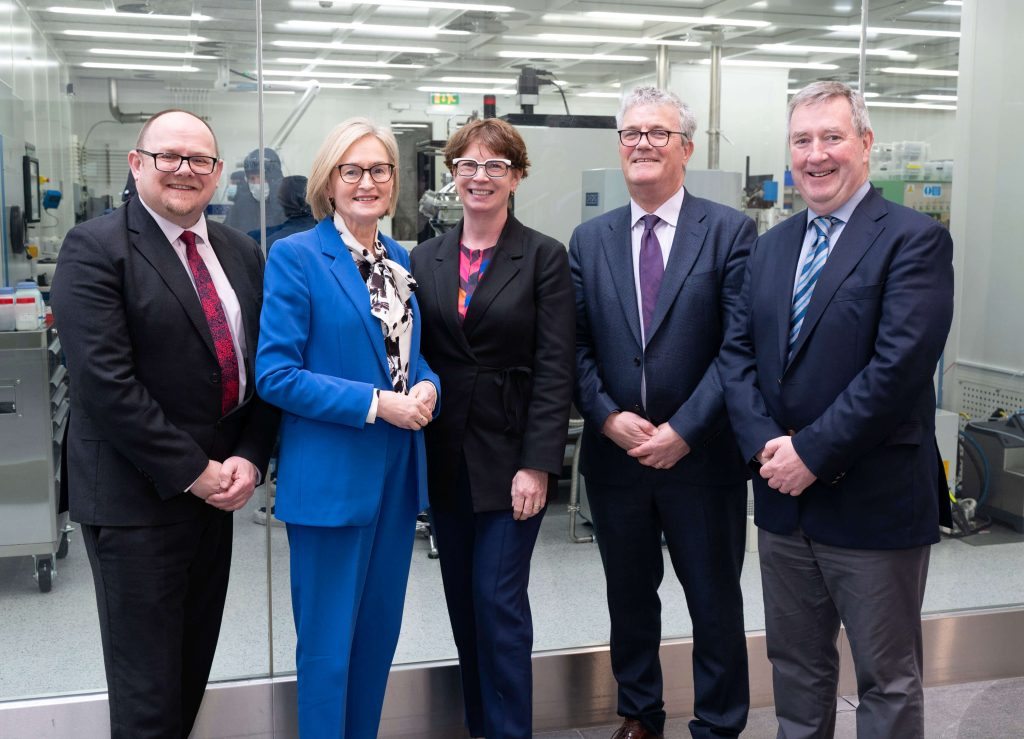
Professor William Scanlon outlined how Tyndall has continued to build on its success in European funding. The Institute has projects spanning all pillars of Horizon Europe as well as projects in the Digital Europe and Institutional Partnerships programmes with over €12m in European funding secured in 2023, bringing our total funding to €30m since 2021 under the current EU Multiannual Financial Framework.
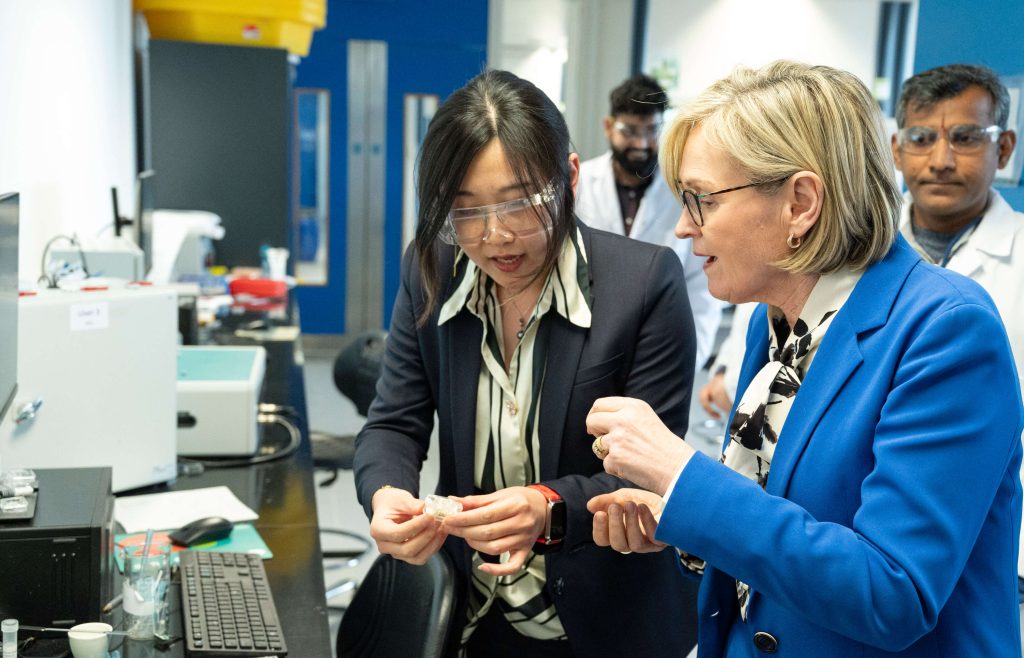
On her tour of Tyndall, Commissioner McGuinness witnessed how Tyndall’s world class infrastructure is addressing global societal challenges and saw demos of EU projects in the areas of agri-food and MedTech.
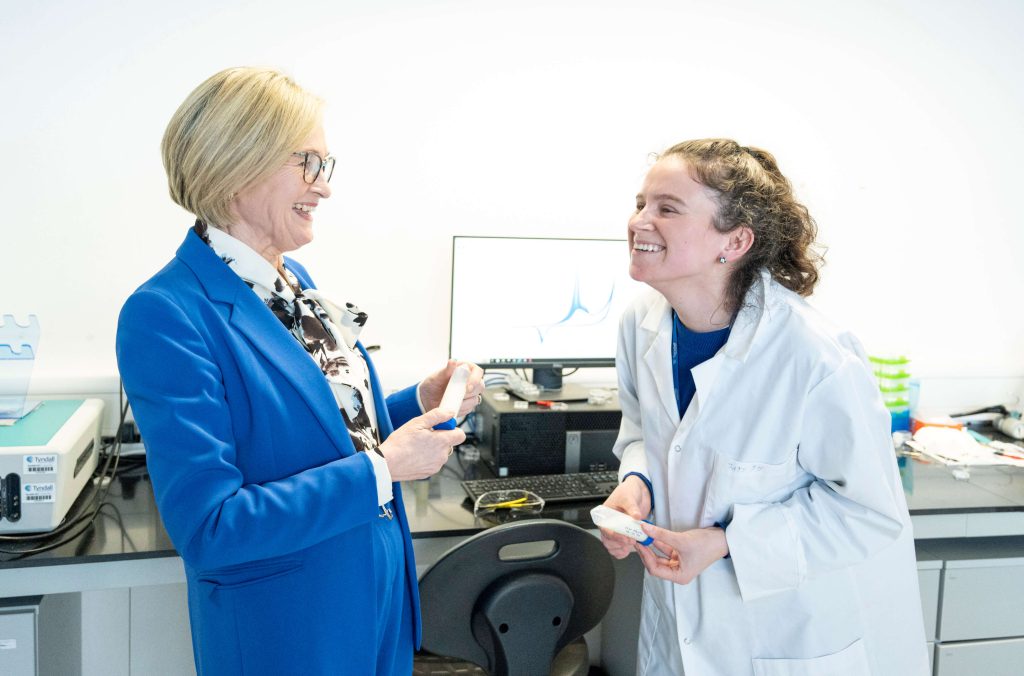
Recent Key successes in large scale European projects include the Tyndall coordinated INFRACHIP, BIOSENSEI, INFERNO, HERIT4AGES and Audit-plus.
- INFRACHIP will facilitate access to state-of-the-art technologies in the field of semiconductors to accelerate research and innovation and respond to challenges in line with the goals set out by the EU Chips Act.
- BIOSENSEI aims to develop a real-time, multiplexed, end-to-end, tailored, and reliable biosensor platform, using cellular responses, for detection of abiotic pollutants.
- INFERNO will involve developing systems to convert waste heat into electricity to reduce greenhouse gas emissions.
- HERIT4AGES will investigate methods for the cost-effective improvement and preservation of the cultural heritage buildings.
- AUDIT-PLUS aims to create tools that will be used to improve energy efficiency in energy intensive industries.
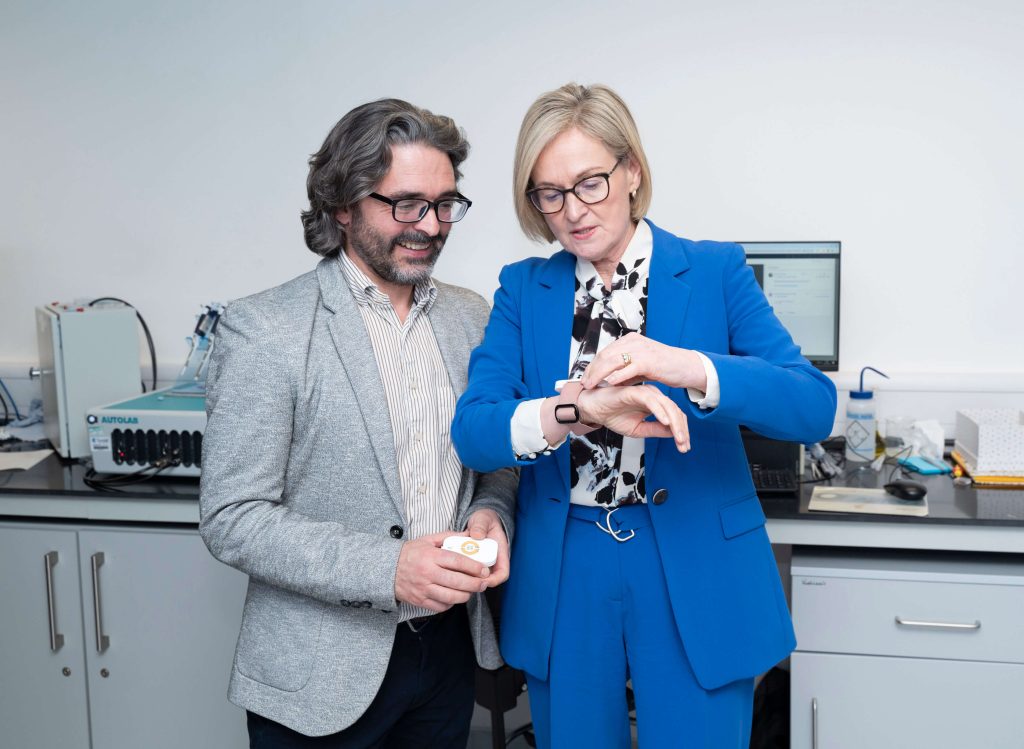
Tyndall is also leading ENTIRE, a European Digital Innovation Hub which was launched in October 2023 and aims to assist SMEs and public sector organisations address digital challenges.
Tyndall is leading Irish clusters in three large-scale CHIPS JU projects – ARCTIC partnering with Intel, PhotonMed together with Boston Scientific and Ficontec, UNLOOC with Abbvie.
Commissioner McGuinness celebrated Tyndall’s research success in Europe and attributed this to Ireland embracing of all that membership of the EU has to offer. European funding mechanisms such as Horizon Europe allow Ireland to participate in collaborative projects strengthening the impact of our collective research and innovation.
